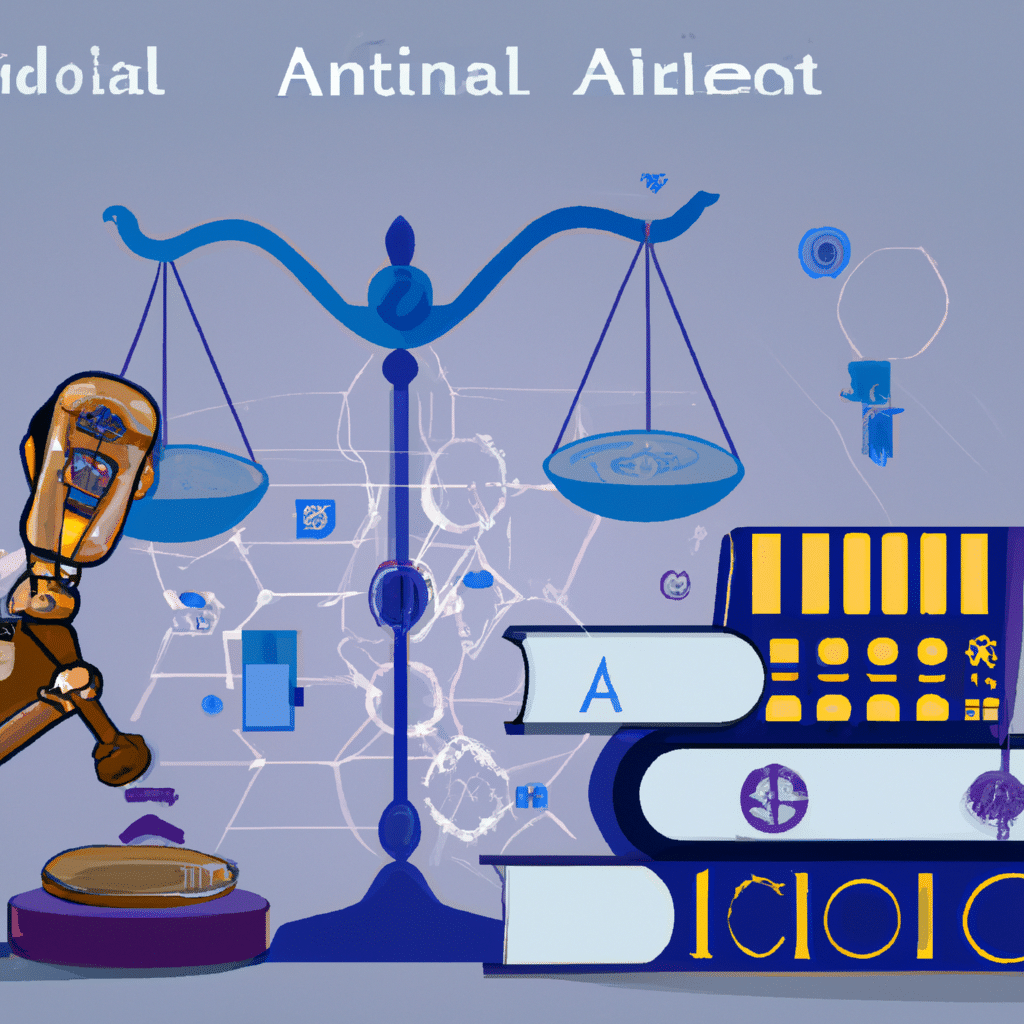The Advantages and Disadvantages of AI in the Legal System

Artificial Intelligence (AI) has been gaining a lot of attention in recent years, and its impact on various industries, including the legal system, cannot be ignored. AI has the potential to revolutionize the legal system, but it also comes with its own set of advantages and disadvantages. In this article, we’ll be exploring the pros and cons of AI in the legal system.
Advantages of AI in the Legal System
- Increased Efficiency
AI has the potential to greatly increase the efficiency of legal processes. AI algorithms can quickly sort through large volumes of data and analyze it to provide valuable insights. This can save legal professionals a lot of time and effort, allowing them to focus on more important tasks.
- Improved Accuracy
AI algorithms are designed to be highly accurate and can process vast amounts of data in a short amount of time. This can help reduce errors and improve the accuracy of legal decisions. This is especially important in cases where the stakes are high, such as in criminal trials.
- Cost Savings
Implementing AI in the legal system can result in significant cost savings. AI algorithms can automate many tasks that are currently performed manually, reducing the need for human labor. This can help reduce the overall cost of legal services while improving their quality.
- Predictive Analytics
AI algorithms can be used to predict the outcomes of legal cases based on historical data. This can help legal professionals make more informed decisions and can also be used to identify areas where legal processes can be improved.
- 24/7 Availability
AI algorithms can be programmed to work around the clock, which means that legal services can be available 24/7. This can be especially helpful in situations where time is of the essence, such as in emergency legal cases.
Disadvantages of AI in the Legal System
- Lack of Emotional Intelligence
One of the key disadvantages of AI is that it lacks emotional intelligence. Legal cases often involve complex emotions and human experiences that cannot be fully understood by AI algorithms. This may limit the ability of AI to make fully informed decisions in certain cases.
- Job Losses
The introduction of AI in the legal system may result in job losses for some legal professionals. AI algorithms can automate many tasks that are currently performed manually, which may reduce the need for human labor.
- Privacy Concerns
The use of AI in the legal system raises privacy concerns. AI algorithms can process vast amounts of personal data, which may be used for other purposes without the individual’s consent. This raises important ethical questions about the use of AI in the legal system.
- Bias
AI algorithms are only as unbiased as the data they are trained on. If the training data is biased in any way, the resulting AI algorithm may also be biased. This can lead to unfair legal decisions and may perpetuate existing social biases.
- Lack of Creativity
AI algorithms are designed to follow predefined rules and make decisions based on data. This means that they lack the creativity and intuition of human legal professionals. This may limit their ability to make certain types of legal decisions.
Conclusion
AI has the potential to revolutionize the legal system, but it also comes with its own set of advantages and disadvantages. While AI can greatly improve the efficiency and accuracy of legal processes, it also raises important ethical questions about privacy and bias. As with any new technology, it is important to carefully consider the potential benefits and drawbacks before fully implementing AI in the legal system.












